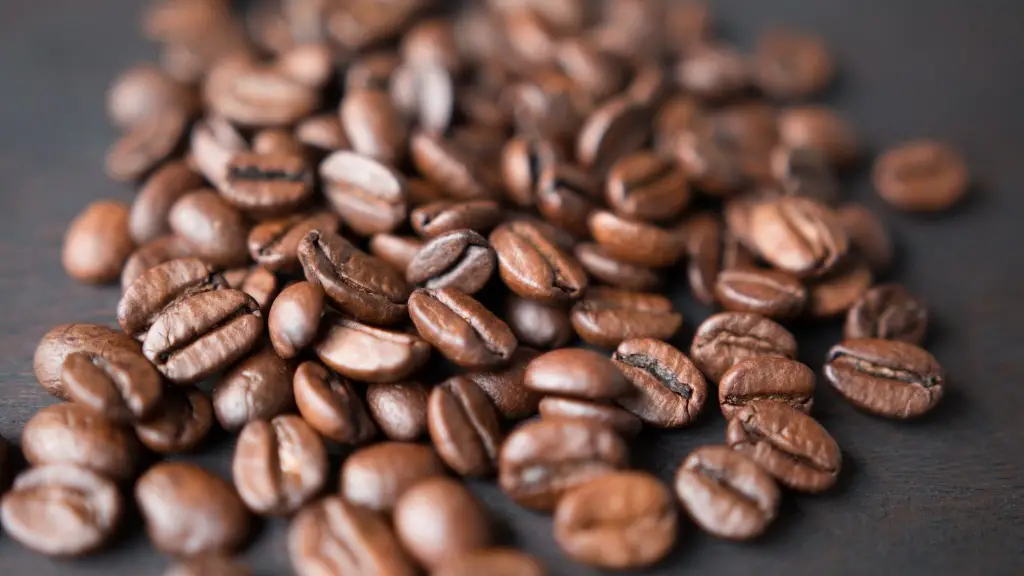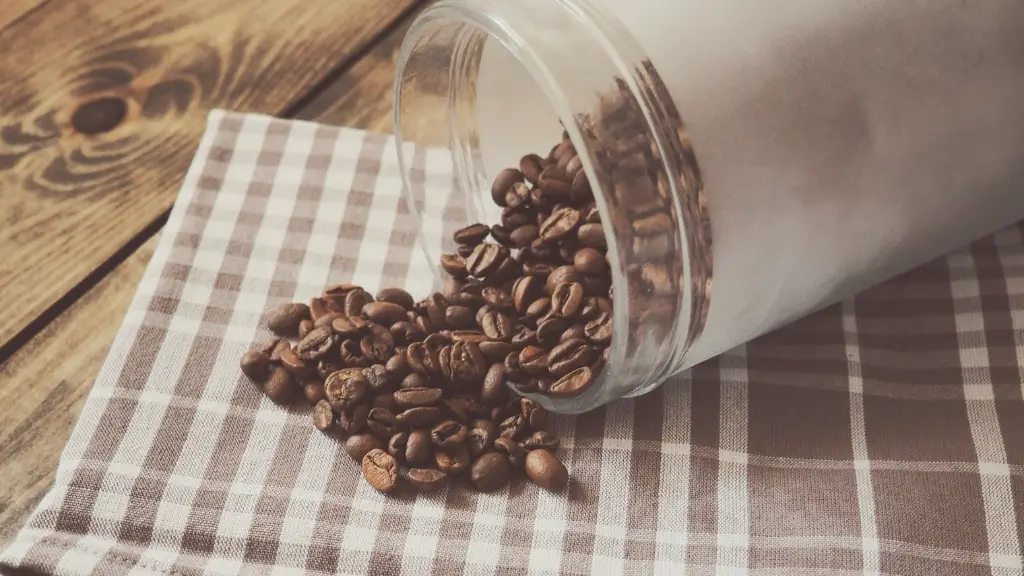Decaf coffee can be an excellent choice for those with a hiatal hernia. A hiatal hernia is a condition in which the upper part of the stomach protrudes through an opening in the diaphragm. This can cause heartburn and other digestive problems, and it is important to consider when selecting coffee.
Decaf coffee has had most of its caffeine removed, reducing the potential for aggravating symptoms of a hiatal hernia. Additionally, decaffeinated coffee still contains many of the beneficial antioxidants found in regular coffee that may help improve overall health.
Caffeine can also affect sleep quality and exacerbate some symptoms associated with a hiatal hernia, so drinking decaf may be beneficial for some people. However, it is important to remember that everyone’s body reacts differently to different foods and beverages, so it is always best to consult with a healthcare professional about what foods are safe for you to eat or drink.
It is also important to know that decaf coffee still contains a small amount of caffeine. So if you do choose this option, it may be wise to limit your intake accordingly.
Health Benefits of Decaf Coffee
Decaf coffee is a great alternative to regular coffee if you’re looking to reduce your caffeine intake. It can provide many of the same health benefits as regular coffee, including a reduced risk of type 2 diabetes, Parkinson’s disease, and liver cancer. Decaf coffee is also a good source of antioxidants and can help improve cholesterol levels. However, it is important to talk to your doctor before drinking decaf coffee if you have a hiatal hernia. If your doctor gives you the green light, then decaf coffee can be part of an overall healthy diet.
Decaf coffee is low in calories, making it an excellent drink for those who are trying to lose weight or maintain their current weight. It also contains some essential minerals, including magnesium and potassium, which can help boost your energy and maintain healthy blood pressure levels. Additionally, research suggests that drinking decaf coffee may reduce the risk of heart disease and stroke.
Overall, decaf coffee can be a great option for those looking to reduce their caffeine intake while still enjoying many of the same health benefits as regular coffee. However, it’s important to talk with your doctor before making any decisions about drinking decaf if you have a hiatal hernia.
Can I Drink Decaf Coffee with a Hiatal Hernia?
Hiatal hernia is a condition that affects the digestive system. While it can be uncomfortable and even painful, there are certain steps you can take to manage the symptoms. Some people wonder if they can drink decaf coffee when they have a hiatal hernia. The answer is yes, in most cases decaf coffee is safe to drink for people with hiatal hernia.
It is important to note that caffeine can aggravate symptoms of hiatal hernia such as heartburn and acid reflux, so it’s best to avoid regular coffee in this case. For this reason, opting for decaffeinated coffee may be a better choice as it does not contain caffeine.
Decaf coffee still contains small amounts of caffeine, but it typically has 97-99% less than regular coffee. This means that the caffeine content will likely not affect symptoms of hiatal hernia significantly. Additionally, decaffeinated coffee still contains beneficial compounds such as polyphenols and antioxidants which may offer some nutritional benefits.
Before drinking decaf coffee, however, it’s best to check with your doctor first as different individuals may react differently to caffeine consumption. In general, decaf coffee should be safe for most people with hiatal hernia but it’s always best to consult your doctor before making any major dietary changes.
Can Decaf Coffee Have Adverse Effects on People with Hiatal Hernia?
Decaf coffee may be a tempting option for people with hiatal hernia because it contains less caffeine than regular coffee. However, it is important to be aware of the potential adverse effects of decaf coffee when consumed by individuals with hiatal hernia. Caffeine can cause an increase in stomach acid production and also relaxes the lower esophageal sphincter, which can both worsen the symptoms of hiatal hernia. Additionally, decaffeinated coffee still contains small amounts of caffeine, so it is important to monitor your reaction to it. It may be best to avoid decaffeinated coffee altogether if you have hiatal hernia.
Others drinks like herbal teas and non-caffeinated beverages may be better options for individuals with hiatal hernia. It is also important to speak with a doctor about any other dietary restrictions or modifications that may be necessary in order to reduce the risk of further exacerbating your condition.
How to Prepare and Consume Decaf Coffee Safely
Decaffeinated coffee is a great alternative for coffee lovers who don’t want to consume caffeine. Decaf coffee still contains some caffeine, but it is usually less than one percent of the amount of caffeine found in regular coffee. It has a milder flavor and can be enjoyed without the side effects of regular coffee. However, if you have a hiatal hernia, there are some important safety considerations to keep in mind when consuming decaf coffee.
The first step is to talk to your doctor about your medical condition and whether or not it would be safe for you to drink decaf coffee. Your doctor may be able to provide specific advice about how much decaf coffee is safe for you to consume, as well as any potential risks associated with drinking it.
Once you know that it’s safe for you to drink decaf coffee, the next step is making sure that you prepare it correctly. Make sure that you use freshly ground beans, and follow the instructions on the package carefully. Brewing time will vary depending on what type of brewer or method of preparation you use, so make sure that you take note of the instructions.
When drinking decaf coffee, pay close attention to how it makes you feel after consumption and don’t overdo it. If at any point during or after drinking decaf coffee, you experience any unpleasant side effects like nausea or dizziness, stop drinking and consult your doctor right away. Decaffeinated coffees should not produce these kinds of symptoms; however, if they do occur, they may indicate an underlying health issue that should be addressed by a medical professional.
By following these simple tips for preparing and consuming decaffeinated coffee safely with a hiatal hernia, you can enjoy this delicious beverage without worrying about potential health
Alternatives to Drinking Decaf Coffee
If you have a hiatal hernia, drinking decaf coffee could worsen your symptoms. Fortunately, there are several alternatives you can try. Herbal teas are a great substitute as they’re naturally caffeine-free and come in a variety of flavors. If you don’t like tea, try brewing fruit juices or making smoothies. Ginger, turmeric, and licorice root are all natural herbal remedies that can help ease the symptoms of hiatal hernia and make for an enjoyable beverage. Other caffeine-free options include dandelion root tea and rooibos tea. You can also make your own flavored waters with fresh fruits and herbs for a delicious drink without caffeine. Finally, there are many decaffeinated coffee substitutes made from grains or beans that can provide the same flavor without the caffeine.
Foods to Avoid When Suffering from Hiatal Hernia
Suffering from a hiatal hernia can be painful and uncomfortable. It is important to watch what you eat in order to manage the symptoms of hiatal hernia. Foods that are high in fat, spices, and acidic foods should be avoided as they can trigger reflux and heartburn. Carbonated beverages, caffeine, alcohol, and chocolate should also be avoided. Eating smaller meals more frequently can help reduce the risk of developing acid reflux. Fruits such as oranges, lemons, limes, tomatoes and grapefruit should also be avoided as they are highly acidic. Eating foods that are high in fiber such as oatmeal, whole grain breads and cereals can help reduce symptoms of hiatal hernia. Drinking decaf coffee is generally safe for those suffering from a hiatal hernia; however it may still cause some irritation depending on the individual’s sensitivity to caffeine.
It is important to listen to your body and stop eating when you begin to feel full or experience any pain or discomfort. Avoiding certain foods can help manage the symptoms associated with hiatal hernia; however it is always best to speak with a doctor before making any drastic changes in your diet.
The End
In conclusion, it is possible to drink decaf coffee with a hiatal hernia, but it is important to speak to your doctor first and be mindful of the effects that caffeine can have on your stomach. Drinking decaf coffee in moderation can help reduce symptoms of hiatal hernia and is generally safe for most people. However, it is always best to consult with a healthcare professional before making any major changes to your diet.





